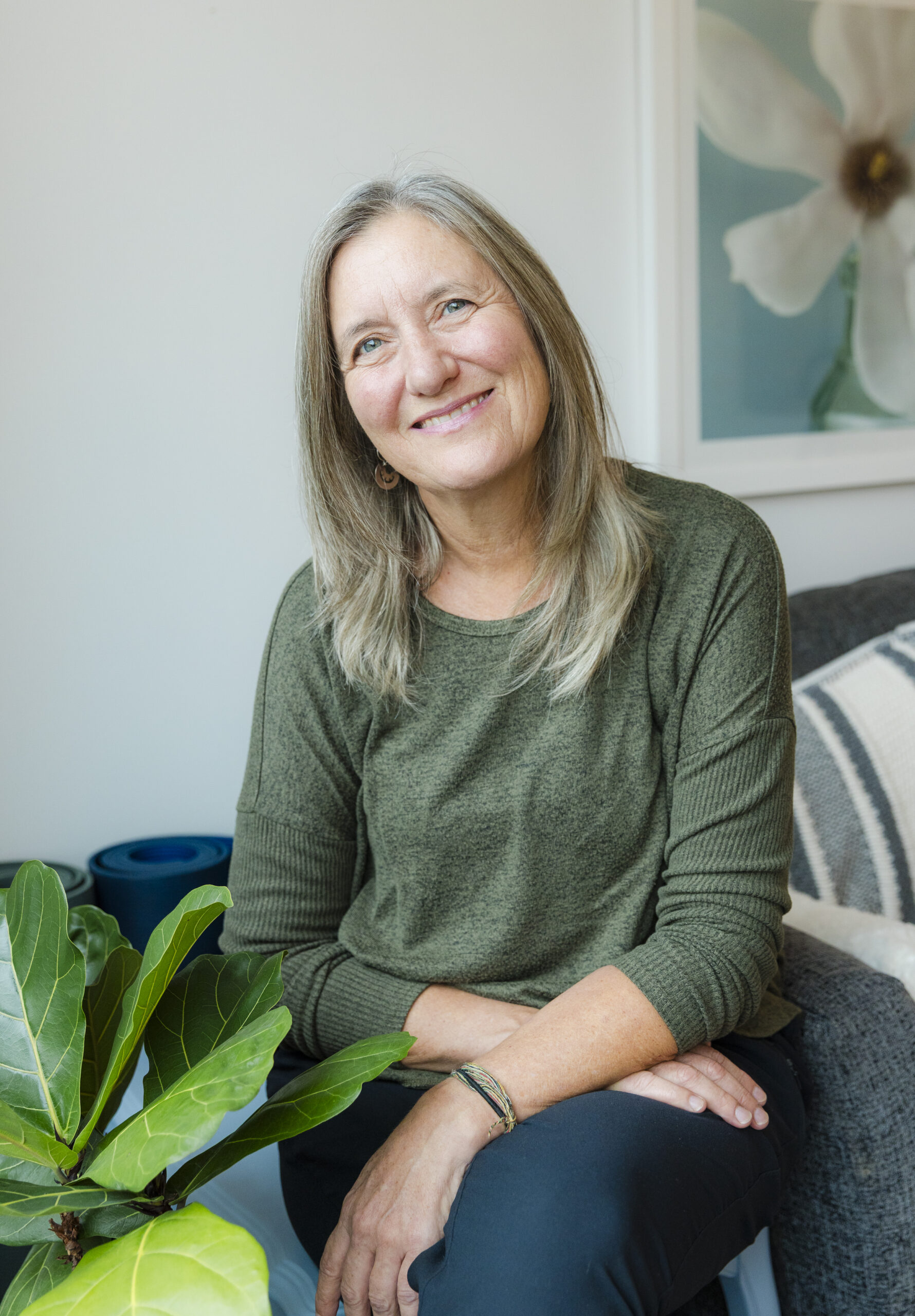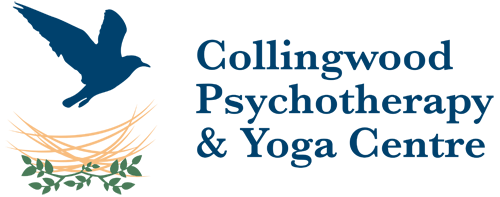About Rhonda
Rhonda Breitbach
Registered Psychotherapist (Qualifying),
BA, Bed, MA, Dip. CREATE
“I’ll walk alongside you with care and curiosity as we explore what’s meaningful for you.”
My Therapeutic Goals:
As a therapist, my goal is to offer a space where you feel seen, supported, and gently encouraged to explore whatever you’re carrying. I work from the belief that healing doesn’t come from fixing what’s “wrong” with us, but from reconnecting with the parts of ourselves that have been unheard, forgotten, or pushed aside. Whether you’re navigating anxiety, grief, trauma, neurodiversity, or simply feeling stuck, I’ll walk alongside you with care and curiosity as we explore what’s meaningful for you.
I understand that healing isn’t just a cognitive process—our bodies and nervous systems also hold memories, patterns, and wisdom. My approach is informed by somatic therapies and the neurobiology of trauma, and I recognize that some experiences can be difficult to express in words alone. That’s where expressive arts therapy can offer something different. By using creative tools like movement, visual art, sound, writing, and natural or found materials, we invite the body’s knowing into the process. This kind of work can be deeply intuitive, giving form to what may be unspoken or just beneath the surface—offering a powerful complement or alternative to talk therapy.
I see therapy as a collaborative and co-creative process—one where we gently make space for healing, explore what your body and imagination are trying to communicate, and uncover new ways of being with yourself. More than anything, I want our sessions to feel like a place where you can reconnect with your own voice, inner resources, and sense of possibility. My hope is that, through this process, you’ll feel more resourced and rooted in yourself—and maybe even discover moments of play, possibility, and magic along the way.
I also offer psychotherapy for clients seeking to work in Spanish.
Please note, when booking a FREE consultation call, Rhonda will call you on the number provided (this is not an inperson or online appointment, it is a phone call).

Collingwood Psychotherapy & Yoga Center
My Path So Far:
My path in life has taken many twists and turns—across continents, communities, and ways of working with people. I grew up moving often, and my family eventually settled in Canada when I was nine. Those early experiences of change and adaptation planted the seeds of curiosity, observation, and openness that continue to shape who I am today.
I’ve always been drawn to stories and the ways we make meaning from our lives. That interest led me to complete a master’s degree in English Literature at the University of British Columbia, and later to a career in education. Over the years, I’ve had the privilege of teaching and learning alongside people in a wide range of contexts—from classrooms in the Czech Republic, Spain, and Ecuador, to refugee and newcomer support programs in Vancouver, to high schools in Cree communities in Northern Quebec, and most recently, to elementary schools here in Simcoe County.
Across all of these settings, I saw again and again how creativity, connection, and a sense of safety can open space for learning, growth, and self-discovery. I am especially drawn to moments where people can express themselves beyond words—through movement, art, storytelling, or simply being witnessed with care. These threads joined with my own search for ways to manage stress and burnout eventually led me to train as an expressive arts therapist at the CREATE Institute in Toronto. Becoming a therapist has felt like a natural extension of my lifelong commitment to creating spaces where people can be curious, tell their stories, and reconnect with their inner resources.
My interest in support neurodivergence work grew from years of teaching and learning alongside children in elementary classrooms, and from walking with clients and family members through the process of discovery and diagnosis. I’ve witnessed how understanding neurodivergence can bring both relief and grief — a shift in identity that asks for curiosity, compassion, and care.
I provide support to clients who are going through immigration, displacement and settlement – I understand this terrain personally. I’ve lived through several overseas moves, shared in my husband’s immigration journey, and supported friends and clients as they’ve adapted to new cultures and communities. I know how disorienting — and how deeply transformative — these experiences can be.
The Process of Psychotherapy:
Psychotherapy is, at its heart, a relationship—one built slowly and gently over time. As we get to know each other, we’ll work together to build a sense of trust, safety, and mutual respect. I see my role as both a companion and a guide in your process, offering support, presence, and curiosity while honouring that you are the expert of your own experience. The work unfolds at your pace and is guided by what feels meaningful and helpful for you. My approach is non-judgemental, client-centered, and always rooted in creating a space where you can feel safe enough to show up just as you are.
It’s completely normal for big feelings or difficult emotions to emerge in therapy—that’s part of the process. Over time, the therapeutic space can also become a place where you expand your capacity for vulnerability, creativity, and play. Through our conversations, your interactions with the materials, and the images or experiences that arise, you may begin to access new insights, inner resources, and ways of relating to yourself and the world around you. I see therapy as a kind of practice ground for life beyond the therapy room—a space where healing happens not only through words, but through presence, expression, and connection.
Therapeutic Theories I Work With:
As an Expressive Arts Therapist, I work intermodally. This means that in any given session, we could work with visual arts, dance & movement, drama, sound & music, poetry, storytelling, and/or nature, according to the themes, issues, and choices that emerge for you. You don’t need any art-making experience or special talents because the approach to the work is “low skill, high sensitivity.” This means that we focus on the process of art-making and the meaning that emerges for you through this process.
My work as an Expressive Arts Therapist is also informed by a number of therapeutic approaches that shape our work together. These include:
- Relational Psychotherapy
- Internal Family Systems
- Polyvagal Theory
- Somatic Therapies
- Mindfulness
- Narrative Therapy
- Ecotherapy
- Attachment Theories
- Self-Compassion
Relevant Education:
Diploma in Expressive Arts Therapy: The CREATE Institute, Toronto, 2019–2022
Specialized Certificate in Eco-Art Therapy: Canadian Institute of Art Therapy, 2021
In-Person Workshop with Cathy Malchiodi – Expressive Arts Therapy and Sensory Integration to “Reset” the Nervous System After Trauma: Creative Arts Therapies, Montreal, 2024
In-Person Training: Sharing in the Healing Journey- Expressive Arts Therapy for Children and Caregivers Exposed to Domestic Violence, YWCA Toronto, 2024
On-Line Training with Michelle Frank: ADHD & Neurodiversity Interventions for Women, 2024
- On-Line Course (6 weeks): “Expressive Arts Therapy and the Circle of Capacity,” Trauma-Informed Practices and Expressive Arts Therapy Institute, 2023
- Workshop (2 days): “Parts Practice, IFS & Psychodrama,” Deep Play Institute, 2022
- On-Line Course: “Working with Core Beliefs of ‘Never Good Enough,’” NICABM, 2022
- On-Line Training: “Creative interventions for children with ADHD,” SickKids CCMH LI, 2022
- Virtual Training (4 weeks): “Working with Children and Parents with Expressive Arts,” Create Institute, 2022
On-Line Training: “Working with Fear” NICABM, 2021
On-Line Training: “Superhero Therapy for Trauma & PTSD” PESI, 2021
In-person Training (20 hours): SMART “Mindfulness Training for Educators,” 2017
Our Mission
We support courageous humans in reconnecting with their inner wisdom and restoring a sense of wholeness -- through transformational therapy that honours the connections between body, mind, spirit, and energy. Our relational, intuitive approach helps people come home to themselves, so they can love deeply and live with self-worth, truth, purpose, and freedom.
